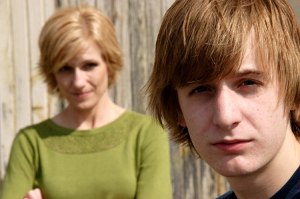When "Good" Kids Misbehave

If you've strolled through parenthood so far with very few difficulties, consider yourself lucky. Kids push buttons, argue and bend the rules because that's their job. It's how kids learn right from wrong. It's how they learn how to make responsible decisions and good choices in life. With loving support and consistency, kids will learn. When parents are used to misbehaving kids, they spring into action without a thought, setting consequences, boundaries and rules. But some parents are thrown into a tailspin when their children misbehave because they aren't used to it. Their kids are mostly compliant and easy, and they really don't have the parenting tools in place to deal with difficult behavior. What then?
It's important to understand a few reasons why kids misbehave. Then you can better deal with the misbehavior and plan for next time!
Just like adults, kids melt down when their basic needs aren't met. Some kids can go and go while others crash without enough sleep or food. And during growth spurts, kids may need extra food and sleep. A tired and hungry child won't feel like being obedient or following directions.
As with sleep, kids need different amounts of food to keep them functioning optimally. Be aware of when your kids are eating, how much they are eating and what they are eating. Check in to see if they are eating their lunches at school, and if not, find out why and propose a solution. Sometimes, kids don't always recognize that they are hungry, but they may act grouchy or difficult. A change of diet or frequency of meals or snacks can help tremendously. Check in with a physician for some healthy nutrition tips.
Sometimes angry attention is better than no attention. When kids are lacking attention from peers, teachers or parents, they may act inappropriately to get attention.
Anger can be demonstrated in many ways. Some kids are moody and ignore adults. Others will become physical, bully peers or siblings, or throw tantrums. Kids don't always understand their feelings but will act them out. With teenagers, anger is easier to pinpoint because they are more verbal . But even teens act out their anger.
If your child is misbehaving due to anger issues, be loving, supportive and communicative. But don't waver. It's important to firmly set limits and stand by consequences. Kids need to know that angry acting out is not ok. Give them the opportunity to verbalize their feelings and communicate in healthy ways. Take a look at some of our anger management resources.
Most children probably can't verbalize or even begin to understand a feeling of hopelessness. A hopeless child may act out and misbehave to let you know that he does not feel right in some way. Hopelessness in children can occur for many reasons. These include disappointment, a failure to meet expectations they have for themselves or that others have for them, abuse, or bullying. Children may also feel hopeless due to a life circumstance such as a death of a loved one, a move or divorce.
Many kids do not have the knowledge or ability to understand the changes in their bodies that occur during a physical illness. Especially when an illness is first appearing, younger children may seem cranky, tired or hungry but don't have the verbal skills to explain that they are feeling sick. And teenagers may ignore illness. If there is a party on the weekend or a sporting event, a teen may appear slightly off in his behavior but function as normal so he's not restricted from any fun events.
As you can see, kids misbehave for a variety of reasons. So if your little angel changes overnight into someone you don't recognize, pay attention, play detective and give her the type of support she needs.
by Joanne McNulty, MS
